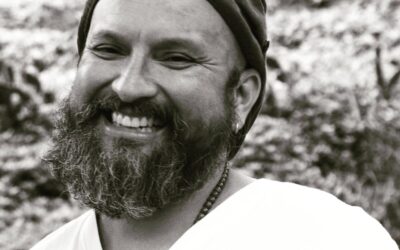In 2023, one of the ways we’re expanding our programs is by offering training for conducting Ketamine-Assisted Psychotherapy in group settings. We held our pilot Group KAP training this past January and will be offering additional group trainings for those with strong KAP experience in the future. PRATI is very passionate about the accessibility and transformative potential the group KAP model offers, and we’re excited to see how this program grows!
Ann Matney, LCPC, attended our January Group KAP Training, and she has been running group KAP sessions in her practice, Sub Rosa Therapy in Bozeman, MT. Her sister, Kate Matney, MD, is Sub Rosa’s prescribing clinician. Both attended a PRATI Foundational KAP Training in 2021. We are inspired by the work that they do in their community, as well as their personal journey to the field of psychedelic medicine — which is why we chose to share their story in this alumni feature! They were both gracious enough to talk with us, and the information and quotes we have included are from our conversation.
Personal Journey to Psychedelic Medicine
In August 2013, Ann and Kate’s brother Andrew was diagnosed with stage four colon cancer. He was 33 years old, and they didn’t know whether he would live for two weeks or six years. The diagnosis was incredibly traumatic for their entire family, and as they grappled with their grief in the wake of his death, they turned to psychedelic medicines. “I had a powerful experience,” said Kate, “and I called my mom one morning crying and just saying that I wished he [Andrew] could have had that experience.”
Ann said that the deep loss of her younger brother caused a “strong natural impulse to first make contact with the unknown — because Andrew had no choice but to do that, to go there.” She saw the psychedelic journey as a way of “honoring his path to turn towards the unknown within myself, whatever I might encounter,” and when she was holding space for him when he died, “the experiences I had in the psychedelic spaces allowed me to stand right behind him and reassure him the passage was safe, and that he was not alone.”
Psychedelic medicine helped support the entire family during this time, and Ann said that her parents — her brother’s primary caregivers and companions — also gained strength from their psychedelic experiences. Together, they were able to better care for each other through the traumatic experience of Andrew’s illness and death, and Ann said, “I believe the transition to death can be encountered with more humility and presence when we are more free of the traumatic load of the dying process. It is essential that people have access to ways of doing this, and psychedelics are definitely a powerful part of this process.”
Kate was in her residency when Andrew was diagnosed, and she flew to Dallas to be with him during his emergency surgery and follow-up appointments. He was uninsured, and reading his notes she saw how his lack of insurance was “guiding their clinical decisions about how far to go for him.” She was faced with the limitations of the medical system and began questioning her role as a physician, saying,
“I think I see how medicine is very limited. I’m very aware of that in practical ways, such as how limited the scientific method is. Being vulnerable with Andrew, though, it just made me realize how it was for him to be in the hospital and to be a patient, and how dehumanizing it often is.”
The experience of supporting her brother through his illness caused Kate to shift her approach to medicine and reconsider what it meant for her to be a doctor, and she even considered leaving the profession.
After Andrew’s death, Ann decided to start their ketamine-assisted psychotherapy center, which she said was “strange because I hadn’t wanted to do it before,” but it was something she felt strongly called to do. She and Kate attended the PRATI training in 2021 — an experience that was transformational for both sisters and catalyzed their commitment to the work of providing ketamine-assisted psychotherapy. Ann took the PRATI Business of Psychedelic Medicine course shortly after. KAP became a way of working in healthcare and supporting clients that better aligned with their values.
The sisters’ vulnerability and willingness to share their personal experiences reminded us of all the varied paths people take on their way to the field of psychedelic medicine, whether through personal healing or witnessing the healing of others. Kate and Ann’s story resonated with other stories we’ve heard from practitioners in our PRATI trainings, and many who enter the field of psychedelic medicines do so because they’ve been personally touched by the power of the medicine. Others who work in the healing profession also see the limitations of western medicine and want to help their patients in a way that humanizes them and holds their whole, complicated selves.
Psychedelic-Assisted Psychotherapy as Community Building
Over the years since Andrew’s death, Ann and Kate have found ways to use their expertise to care for people in ways that empower them. Their practice, Sub Rosa Therapy, is an integrative wellness center that “helps clients resolve trauma, increase embodiment and presence, and align with their purpose.” Along with ketamine-assisted psychotherapy, Sub Rosa Therapy also offers Somatic Experiencing, and Ann has completed the advanced year of the Somatic Experiencing training program.
Recently, they have expanded their ketamine-assisted psychotherapy offerings to include group work, and when we talked, they had just completed a group session over the past weekend. What they value in group work is the community that is built. The question they ask in their work is: “what happens when you step back and let people be in a safe space together?”
When I asked them about the differences between their group work and individual KAP sessions, Ann said:
“It’s just more powerful. I think it’s the group witnessing. So it’s not this transaction between one therapist and one participant. The group forms connections, and they care for each other. Something bigger is being built in terms of community and relationship.”
Kate echoed Ann, adding, “It’s like a group just sort of does itself. You just put the pieces in place, you just hold this space.”
The work they do is often very challenging, but they remain committed to being present with the discomfort and uncertainty of their clients, holding a space for them to heal. They are also committed to making ketamine-assisted therapy more accessible, which is one of the reasons they began offering group KAP. Many providers turn to group KAP as a way to make therapy more affordable, since the cost for therapy hours is shared by the group and reduces the barrier to entry for KAP. But the benefits of group KAP extend far beyond the reduced price.
Group KAP offers something unique that can’t be found within individual sessions, something that Ann called “spontaneous arising of meaning.” Our modern capitalist culture causes people to be disconnected from themselves, their community, and the more-than-human world, but ketamine-assisted therapy offers a unique opportunity to reconnect, particularly in a group setting. As Ann said:
“I think that psychedelic medicines have been used to bring communities of people into a shared mind and heart space for centuries, so that their lives would have meaning. And when we’re together and that has been missing, we’ve tried to replace it with a sort of capitalist and enlightenment philosophy.
So now, when we do ritual, we try to honor individuals and honor the spontaneous arising of meaning that occurs in these spaces without imposing old, previously discovered practices from the past. It feels like the emergent space can be imbued with meaning and that meaning can be shared by the group.”
Ketamine-assisted psychotherapy empowers individuals to heal themselves, and within a group setting, the community is empowered to support each other in that healing. Unlike the traditional medical model where a physician with degree diagnoses and treats a patient, KAP democratizes healing, allowing the community to hold and heal each other.
Practical Tips for Group KAP
Kate and Ann also generously shared some practical tips for how they structure their group KAP sessions, in hopes that other providers might benefit from what they’ve learned.
Sub Rosa Therapy group sessions are held over a weekend, with an initial session on Friday night, then a medicine session on Saturday, and an integration group on Sunday. On Friday, they spend two to three hours forming the group, creating the container, and getting them prepared to journey.
We found their discussion of ”liberating structures” with their group work to be especially interesting. They use this model to structure conversation within the group, allowing everyone space to share and hear from each other. There is a talking stick, and participants are told that only the person holding the stick can speak. Then there are three rounds of sharing — with the first round dedicated to sharing challenges and hopes, the second for members to reflect on things shared by others that resonated for them, and the final round serving as an open conversation.
The conversation structure is liberating because people are able to let go of the anxiety around sharing in a group or the need to “fill a vacuum” when others aren’t talking.
Their other practical tip is to find a beautiful space and have a really good sound system. The room they use has dimmable lighting, and they bring tea and oracle cards. They also incorporate what they learned at their PRATI training about set and setting, arranging the room with mats and carefully curating the musical experience.
“What Kind of Story Do You Want to Tell of The Work You’re Doing?”
At the end of the conversation, we asked what story Kate and Ann want to tell about their work in the area of psychedelic medicines.
Ann:
“I would like to give a compliment to the doctors and medical professionals in this field. When I did the PRATI training, I had this realization on the sublingual day that there was a foundational equality at this level between humans. I just was so impressed by all of the doctors who would work so hard to get to the top of the ambition or status-like pyramid of power. And then they would just turn around and try and open up a space for everyone.”
Kate:
“It’s more than the ketamine, and it’s even more than ketamine with set and setting. It’s needing a space for healing, and it’s my job to welcome people into that space, whether that’s through being a participant or in the role of volunteering or co-facilitating. And it’s important to not be afraid of the way these roles cross and intersect and interweave, to not get distant or too clinical.”
Ann and Kate’s personal story and their work in group ketamine-assisted psychotherapy is inspiring, and we hope that their story will serve to spread awareness and understanding of the power of psychedelic medicines in healing psychological trauma. Through their work, they have found a way to honor Andrew’s memory while supporting others on their journey toward healing. They are passionate advocates for wider access to psychedelic medicines, believing that “there’s room for everyone.”
We are honored that they are alumni of PRATI and part of the PRATI community, and we look forward to seeing what the future holds for them and supporting them however we can! Thank you Ann and Kate — your compassion, care, and generosity are bright examples of transformational care.





